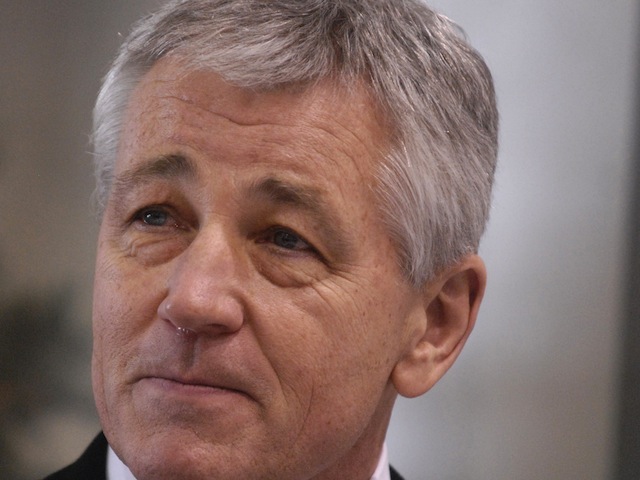On Monday, Defense Secretary Chuck Hagel outlined for the Conference of Defense Ministers of the Americas how the Pentagon plans to address “climate change” issues that could plague the military.
Hagel asserted that warmer climates, oceans rising, and other weather crises could trigger food and water shortages, pandemic disease, and disputes revolving around refugees and resources. But in the most astonishing statement, Hagel added that climate change is a “threat multiplier” that may increase such diverse problems as diseases and terrorism, saying, “We must be clear-eyed about the security threats presented by climate change, and we must be pro-active in addressing them.”
Hagel cited the Pentagon’s “2014 Climate Change Adaptation Roadmap,” saying that coastal military installations would have to be changed to withstand the rise in water levels; humanitarian assistance missions will need to be expanded; weapons and other military equipment will have to be prepared for severe weather conditions.
According to the Los Angeles Times, Hagel pontificated, “This road map shows how we are identifying — with tangible and specific metrics, and using the best available science — the effects of climate change on the department’s missions and responsibilities. Drawing on these assessments, we will integrate climate change considerations into our planning, operations, and training.”
Hagel revealed that the U.S. military has finished a joint assessment with officials from Chile, Colombia, El Salvador, and Trinidad and Tobago. Peruvian President Ollanta Humala said in his opening remarks, “If we don’t do anything to address the effects of climate change, there will be nothing left.”
Hagel spoke with top leaders in Colombia, Chile, and Peru before the conference on his six-day trip through South America. The conference, which includes 34 nations, began Monday and ends Tuesday in the southern Peruvian city of Arequipa.
He asserted, “I recognize that our militaries play different roles and have different responsibilities in each of our nations. I also recognize that climate change will have different impacts in different parts of the hemisphere. But there are many opportunities to work together.”
The United Nations has scheduled a conference in Peru in December dealing with climate change.

COMMENTS
Please let us know if you're having issues with commenting.